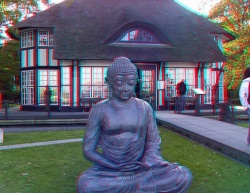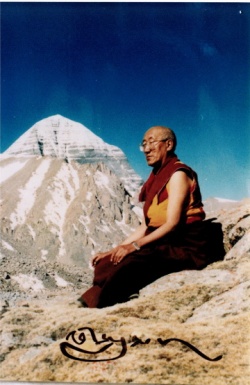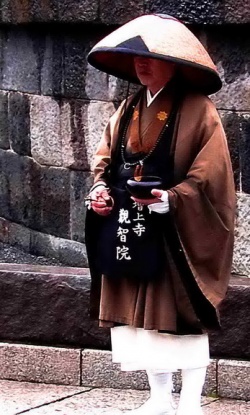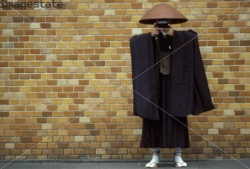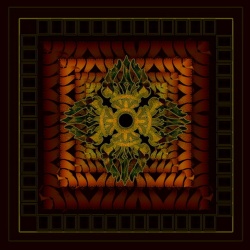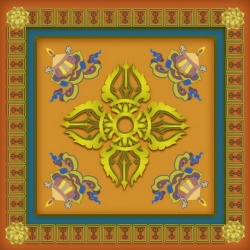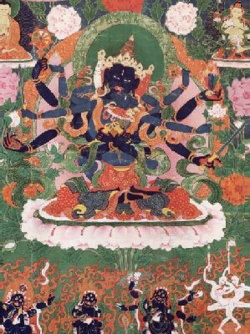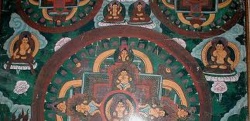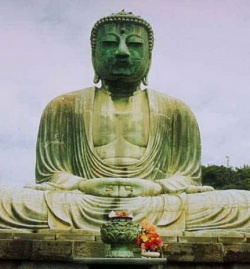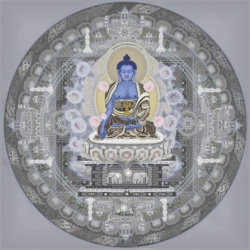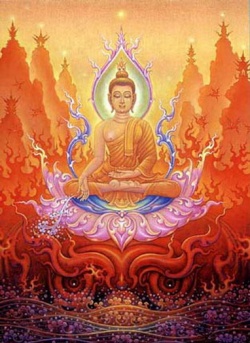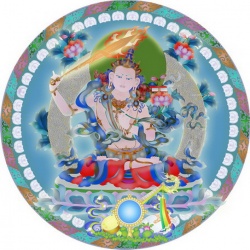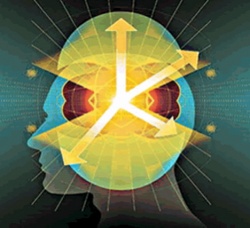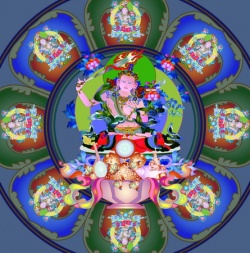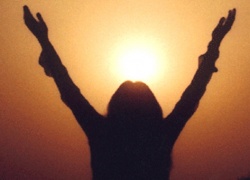Difference between revisions of "Nirvana Sutra: Chapter Four: On Long Life"
| (One intermediate revision by one other user not shown) | |||
| Line 1: | Line 1: | ||
{{DisplayImages|883|861|1765|15|101|477|722|719|659|182|1872|490|424|730|1207|240|1827|1837}} | {{DisplayImages|883|861|1765|15|101|477|722|719|659|182|1872|490|424|730|1207|240|1827|1837}} | ||
{{Centre|<big><big>Mahayana Mahaparinirvana Sutra</big></big><br/> | {{Centre|<big><big>Mahayana Mahaparinirvana Sutra</big></big><br/> | ||
| + | |||
| + | |||
| + | |||
| + | |||
| + | |||
| + | |||
| + | |||
Translated by KOSHO YAMAMOTO<br/> | Translated by KOSHO YAMAMOTO<br/> | ||
| + | |||
| + | |||
FROM Dharmakshema's Chinese version<br/> | FROM Dharmakshema's Chinese version<br/> | ||
| + | |||
| + | |||
The World's genuinely first-ever web edition of this complete scripture<br/> | The World's genuinely first-ever web edition of this complete scripture<br/> | ||
| + | |||
(This "Yamamoto/page edition" is Copyright of Dr. Tony Page, 2004 )<br/> | (This "Yamamoto/page edition" is Copyright of Dr. Tony Page, 2004 )<br/> | ||
| + | |||
The Complete Kosho Yamamoto English Translation of the "Nirvana Sutra", edited and revised by Dr. Tony Page, typographically improved by Jay and Gabriele Mazo}} | The Complete Kosho Yamamoto English Translation of the "Nirvana Sutra", edited and revised by Dr. Tony Page, typographically improved by Jay and Gabriele Mazo}} | ||
| − | |||
| − | “The [[Buddha]] said to all the [[bhiksus]]: "If you have any [[doubt]] about the [[moral]] [[precepts]], you are free to ask questions. I shall now explain and fully satisfy you. I have already practised the Way and clearly attained the [[true nature]] of the All-Void of all things. O [[Bhiksus]]! Only the [[Tathagata]] has practised the [[true nature]] of the All-Void of all things." He also said to the [[bhiksus]]: "If you have any [[doubts]], ask me, all of you!" Then the [[bhiksus]] said to the [[Buddha]]: "O [[World-Honoured One]]! With the [[wisdom]] that we have, we can put no questions to the [[Tathagata]], the Alms-deserving and All-Enlightened One. Why not? The [[world]] of the [[Tathagata]] cannot be known by us. All [[samadhis]] cannot be [[thought]] of. Whatever is said is not within the {{Wiki|compass}} of our [[comprehension]]. So, with what [[wisdom]] we have, there can be no posing of questions to the [[Tathagata]]. O [[World-Honoured One]]! There is a man, for example, who is 120 years old. [[Suffering]] from a long {{Wiki|illness}}, he is in bed and cannot get up. His [[vitality]] has gone, so that he cannot live long. There is a rich man there who is on his way to far-off places on business. He gives this man a hundred pounds of {{Wiki|gold}} and says: "I intend to go on a journey and entrust this [[treasure]] to you. After 10 or 20 years, I shall come back, when my business is concluded. When I am home again, give this back to me." The sick old man receives it. And he has none to succeed him. After some [[time]], the {{Wiki|illness}} develops and he [[dies]], and what was entrusted to him cannot be found. The [[person]] who entrusted the [[treasure]] to him comes back from his journey, looks around, but cannot find the man. One like this, being [[ignorant]], cannot think and weigh the [[good and bad]] of entrusting a thing to the hands of another [[person]]. So, on coming back, he does not know where to look. Thus the [[treasure]] gets lost. O [[World-honoured One]]! It is the same with us [[sravakas]]. We hear the kind admonition of the [[Tathagata]], but we cannot hold it long. It is as with the old man who is entrusted with [[treasure]]. We are [[ignorant]] now and do not know what to ask regarding the [[precepts]]." The [[Buddha]] said to the [[bhiksus]]: "If you question me now, it will [[benefit]] all [[beings]]. That is why I say that you should ask about any [[doubts]] you may have." Then, all the [[bhiksus]] said to the [[Buddha]]: "O [[World-Honoured One]]! [[Imagine]], for example: there is a man here of 25, full of [[vitality]] and right and proper. He has many [[treasures]], such as {{Wiki|gold}}, {{Wiki|silver}}, beryl, etc. He has his [[parents]], wife, children, relatives, and all his family. Then a man comes and hands over a [[treasure]] to him, saying: "I have things to do and am about to go on a long journey. My business concluded, I shall be back. When I am back home, return this to me." After this, the young man guards the [[treasure]] well, as though it were his own. The (young) man falls ill and says: "All this {{Wiki|gold}} was entrusted to my care. When the man gets back home, give this to him. " One who is [[wise]] [[knows]] how to act and weigh things. His business concluded, the man returns, and what he had entrusted (to the other) is all safe, with nothing lost. The same with the [[World-Honoured One]]. If the [[treasure]] is entrusted to [[Ananda]] and the [[bhiksus]], it cannot survive long. Why not? Because all [[sravakas]] and [[Mahakasyapa]] must pass away and the situation will inevitably be like that of the old man who receives the entrusted goods of the other [[person]]. Because of this, all the [[unsurpassed]] [[Buddhist teachings]] must be entrusted to the hands of all [[Bodhisattvas]]. They discuss well and the [[treasure]] will live long and flourish for [[infinite]] thousands of ages and [[benefit]] all [[beings]] enormously. This is like the case of the man in the prime of his [[life]] who receives the entrusted goods of the other [[person]]. Because of this, all [[Bodhisattvas]] can well pose questions. What [[wealth]] we have may be likened to a mosquito or sawfly. How can we question the [[Tathagata]] on the depths of the [[teaching]]?" At this, all the [[sravakas]] sank into [[silence]]. | + | ==[[Chapter]] Four: On Long [[Life]]== |
| + | |||
| + | “The [[Buddha]] said to all the [[bhiksus]]: "If you have any [[doubt]] about the [[moral]] [[precepts]], you are free to ask questions. I shall now explain and fully satisfy you. I have already practised the Way and clearly [[attained]] the [[true nature]] of the All-Void of all things. O [[Bhiksus]]! Only the [[Tathagata]] has practised the [[true nature]] of the All-Void of all things." He also said to the [[bhiksus]]: "If you have any [[doubts]], ask me, all of you!" Then the [[bhiksus]] said to the [[Buddha]]: "O [[World-Honoured One]]! With the [[wisdom]] that we have, we can | ||
| + | |||
| + | put no questions to the [[Tathagata]], the Alms-deserving and [[All-Enlightened One]]. Why not? The [[world]] of the [[Tathagata]] cannot be known by us. All [[samadhis]] cannot be [[thought]] of. Whatever is said is not within the {{Wiki|compass}} of our [[comprehension]]. So, with what [[wisdom]] we have, there can be no posing of questions to the [[Tathagata]]. O [[World-Honoured One]]! There is a man, for example, who is 120 years old. [[Suffering]] from a long {{Wiki|illness}}, he is in bed and cannot get up. His [[vitality]] has gone, so that he cannot live long. There is a | ||
| + | |||
| + | |||
| + | rich man there who is on his way to far-off places on business. He gives this man a hundred pounds of {{Wiki|gold}} and says: "I intend to go on a journey and entrust this [[treasure]] to you. After 10 or 20 years, I shall come back, when my business is concluded. When I am home again, give this back to me." The sick old man receives it. And he has none to succeed him. After some [[time]], the {{Wiki|illness}} develops and he [[dies]], and what was entrusted to him cannot be found. The [[person]] who entrusted the [[treasure]] to him comes back from his journey, looks around, but cannot find the man. One like this, being [[ignorant]], cannot think and weigh the [[good and bad]] of entrusting a thing to the hands of another [[person]]. So, on coming back, he | ||
| + | |||
| + | does not know where to look. Thus the [[treasure]] gets lost. O [[World-honoured One]]! It is the same with us [[sravakas]]. We hear the kind admonition of the [[Tathagata]], but we cannot hold it long. It is as with the old man who is entrusted with [[treasure]]. We are [[ignorant]] now and do not know what to ask regarding the [[precepts]]." The [[Buddha]] said to the [[bhiksus]]: "If | ||
| + | |||
| + | you question me now, it will [[benefit]] all [[beings]]. That is why I say that you should ask about any [[doubts]] you may have." Then, all the [[bhiksus]] said to the [[Buddha]]: "O [[World-Honoured One]]! [[Imagine]], for example: there is a man here of 25, full of [[vitality]] and right and proper. He has many [[treasures]], such as {{Wiki|gold}}, {{Wiki|silver}}, [[beryl]], etc. He has his [[parents]], wife, children, relatives, and all his [[family]]. Then a man comes and hands over a [[treasure]] to him, saying: "I have things to do and am about to go on a long journey. My business concluded, I shall be back. When I am back home, return this to me." After this, the young man guards the [[treasure]] well, as though it were his [[own]]. The (young) man falls ill and | ||
| + | |||
| + | |||
| + | says: "All this {{Wiki|gold}} was entrusted to my [[care]]. When the man gets back home, give this to him. " One who is [[wise]] [[knows]] how to act and weigh things. His business concluded, the man returns, and what he had entrusted (to the other) is all safe, with nothing lost. The same with the [[World-Honoured One]]. If the [[treasure]] is entrusted to [[Ananda]] and the [[bhiksus]], it cannot survive long. Why not? Because all [[sravakas]] and [[Mahakasyapa]] must pass away and the situation will inevitably be like that of the old man who receives the entrusted goods of the | ||
| + | |||
| + | other [[person]]. Because of this, all the [[unsurpassed]] [[Buddhist teachings]] must be entrusted to the hands of all [[Bodhisattvas]]. They discuss well and the [[treasure]] will live long and flourish for [[infinite]] thousands of ages and [[benefit]] all [[beings]] enormously. This is like the case of the man in the prime of his [[life]] who receives the entrusted goods of the other [[person]]. Because of this, all [[Bodhisattvas]] can well pose questions. What [[wealth]] we have may be likened to a mosquito or sawfly. How can we question the [[Tathagata]] on the depths of the [[teaching]]?" At this, all the [[sravakas]] sank into [[silence]]. | ||
| + | |||
| + | Then, the [[Buddha]], praised all the [[bhiksus]] and said: "It is good, it is good that you have all [[attained]] the unleakable (undefiled, asrava-free) [[mind]] of the [[arhat]]. I also [[thought]] of this once myself. Because of these two circumstances (i.e. that the [[sravakas]] cannot and the [[Bodhisattvas]] can pose questions), I entrust the [[Mahayana]] to all the [[Bodhisattvas]] and allow this Wonderful [[Dharma]] to live long". Then the [[Buddha]] said to all the congregation: "O all good men and women! You cannot calculate the length of my [[life]]. No unhindered [[speech]] of a [[Bodhisattva]] can fully express this. You may, if you will, ask me about the [[precepts]] or how to [[take refuge]]. You may do this a second or third [[time]]." | ||
| + | |||
| + | At that [[time]], among those congregated, there was a [[Bodhisattva-mahasattva]] of the stage of the boyhood abode (ie. on the 9th of the 10 [[Bodhisattva levels]]). He had been born into a [[Brahmin]] [[family]] in a hamlet called [[Tara]]. His [[family]] [[name]] was [[Mahakasyapa]]. By the [[divine]] power of the [[Buddha]], he rose from his seat, bared his right elbow (shoulder) and walked around the [[Buddha]] 100 thousand times, and placing his right knee on the ground and folding his hands, said to the [[Buddha]]: "O [[World-Honoured One]]! I would now like to ask | ||
| + | |||
| + | something of the [[Buddha]]. If you will allow me, I [[desire]] to speak." The [[Buddha]] said to [[Kasyapa]]: "The [[Tathagata]], the Alms-deserving and [[All-Enlightened One]] allows you to say anything. I shall expound for you, clarify your [[doubt]], and gladden you." Then [[Bodhisattva]] [[Kasyapa]] again said to the [[Buddha]]: "O [[World-Honoured One]]! The [[Tathagata]], pitying me, gives me permission. I now shall ask. But the [[wisdom]] that I have is petty, like that of a mosquito or sawfly. You, Tathagata-World-Honoured One, are [[exalted]] in personal [[virtue]] and | ||
| − | + | are surrounded by a retinue as fragrant as {{Wiki|sandalwood}} and as difficult to subdue and as [[invincible]] as a [[lion]]. The [[Tathagata's]] [[person]] is like a true [[diamond]]. You shine like [[beryl]]. All (about you) is true and difficult to break and is surrounded by a great sea of [[Wisdom]]. All the [[Bodhisattva-mahasattvas]] congregated here are {{Wiki|perfect}} in [[infinite]] and [[boundless]] depths of [[virtue]]. They are like gandhahastins. How can I put questions before such a congregation? Only now, guarded by the [[Buddha's]] [[divine]] power and by dint of the great [[dignity]] of [[moral]] [[virtue]] of the [[people]] congregated here, shall I put some questions to you." He spoke in a [[gatha]]: | |
| − | |||
"How do we gain long [[life]], the [[Adamantine]] and [[Invincible]] [[body]]? | "How do we gain long [[life]], the [[Adamantine]] and [[Invincible]] [[body]]? | ||
| − | How do we gain | + | How do we gain great strength? |
How by this [[sutra]] do we ultimately attain the other shore? | How by this [[sutra]] do we ultimately attain the other shore? | ||
| Line 24: | Line 57: | ||
We beseech you to open the undisclosed door and, | We beseech you to open the undisclosed door and, | ||
| − | For the sake of [[beings]], teach us widely. | + | For the [[sake]] of [[beings]], teach us widely. |
| − | How can we, for the sake of the masses, | + | How can we, for the [[sake]] of the masses, |
Become an expansive [[refuge]] and, although not [[arhats]], be {{Wiki|equal}} to [[arhats]]? | Become an expansive [[refuge]] and, although not [[arhats]], be {{Wiki|equal}} to [[arhats]]? | ||
| − | How can we, for the sake of [[beings]], | + | How can we, for the [[sake]] of [[beings]], |
Foresee [[Papiyas]]' (i.e. [[Mara]], the Devil's) {{Wiki|disturbances}}? | Foresee [[Papiyas]]' (i.e. [[Mara]], the Devil's) {{Wiki|disturbances}}? | ||
| Line 60: | Line 93: | ||
How can one be like the {{Wiki|sun}} and [[moon]], | How can one be like the {{Wiki|sun}} and [[moon]], | ||
| − | Like the evening star and {{Wiki|Jupiter}}? | + | Like the evening [[star]] and {{Wiki|Jupiter}}? |
How can one, not yet aspiring, be called a [[Bodhisattva]]? | How can one, not yet aspiring, be called a [[Bodhisattva]]? | ||
| Line 66: | Line 99: | ||
How can all [[beings]] gain [[fearlessness]], | How can all [[beings]] gain [[fearlessness]], | ||
| − | Like Jambunada {{Wiki|gold}}, in which no flaw can ever be detected? | + | Like [[Jambunada]] {{Wiki|gold}}, in which no flaw can ever be detected? |
How can one, though living in a {{Wiki|defiled}} land, | How can one, though living in a {{Wiki|defiled}} land, | ||
| Line 90: | Line 123: | ||
And be like the [[tree]] in the [[heavens]] that answers well one's wishes? | And be like the [[tree]] in the [[heavens]] that answers well one's wishes? | ||
| − | How can one speak about the three Vehicles | + | How can one speak about the [[three Vehicles]] |
(of [[sravaka]], [[pratyekabuddha]], and [[Bodhisattva]]) and the Natureless? | (of [[sravaka]], [[pratyekabuddha]], and [[Bodhisattva]]) and the Natureless? | ||
| Line 98: | Line 131: | ||
How can all [[Bodhisattvas]] be [[indestructible]] ones? | How can all [[Bodhisattvas]] be [[indestructible]] ones? | ||
| − | How can one be the [[eyes]] and guide for a [[person]] born blind? | + | How can one be the [[eyes]] and guide for a [[person]] born [[blind]]? |
How can one gain a multifarious head ([[mind]] rich in [[knowledge]]) | How can one gain a multifarious head ([[mind]] rich in [[knowledge]]) | ||
| Line 118: | Line 151: | ||
And become blessed with [[Dharma]]? | And become blessed with [[Dharma]]? | ||
| − | How do all [[Bodhisattvas]] make away with all illnesses? | + | How do all [[Bodhisattvas]] make away with all [[illnesses]]? |
How do they expound to all [[beings]] the undisclosed teachings? | How do they expound to all [[beings]] the undisclosed teachings? | ||
| Line 128: | Line 161: | ||
How can one attain the [[highest]] and [[unsurpassed]] Way? | How can one attain the [[highest]] and [[unsurpassed]] Way? | ||
| − | I now beseech the [[Tathagata]], for the sake of the [[Bodhisattvas]], | + | I now beseech the [[Tathagata]], for the [[sake]] of the [[Bodhisattvas]], |
To expound the deepest and most wonderful teachings. | To expound the deepest and most wonderful teachings. | ||
| Line 148: | Line 181: | ||
Such depths as of the [[world]] of all [[Buddhas]]." | Such depths as of the [[world]] of all [[Buddhas]]." | ||
| − | |||
| − | Then | + | Then, praising [[Bodhisattva]] [[Kasyapa]], the [[Buddha]] said: "Well said, well said, O good man! You have not yet arrived at All-Knowledge, but I am he who has [[attained]] it. You now ask about the deepest depths of the undisclosed [[doctrine]]. Now, O good man! I, sitting under the [[Bodhi Tree]], first [[attained]] right [[Enlightenment]]. At that [[time]], in all [[Buddha-lands]] as numerous as the sands of countless [[asamkhyas]] of [[Ganges]], there were [[Bodhisattvas]]. They too asked of me the meaning of this deepest [[doctrine]]. And what they said and the [[virtue]] |
| + | |||
| + | thereof were thus, the same, not different. Asking thus, great benefits accrue to all [[beings]]." Then [[Bodhisattva]] [[Kasyapa]] said to the [[Buddha]]: "O [[World-Honoured One]]! The power of my [[wisdom]] does not extend thus far as to put such deep questions to the [[Tathagata]]. O [[World-Honoured One]]! This is like a mosquito or sawfly that cannot fly over a great sea or fly round in the high [[heavens]]. The same with me. I have no power to ask the [[Tathagata]] about this great sea of [[Wisdom]] or the meaning of the great depths of {{Wiki|space-like}} extension of | ||
| + | |||
| + | “[[Dharmata]]”. O [[World-Honoured One]]! This is like a [[king]] who hands over to the hands of the officer in charge of [[treasures]] a bright [[gem]] that was housed in the [[knot]] of his [[hair]], and the officer, on receiving it, increases the guard. The same is the case with me. Having received the depths of the [[Tathagata's]] [[Mahayana]] [[teaching]], I shall guard it all the more carefully. Why? This is but to make me attain the great depths of [[Wisdom]]." | ||
| + | |||
| + | |||
| + | Then the [[Buddha]] said to [[Kasyapa]]: "O good man! Listen clearly, listen clearly! I shall now tell you the [[cause]] of the [[Tathagata's]] longevity of [[life]]. The [[Bodhisattva]], through this [[action]], gains long [[life]]. For this [[reason]], listen with your best [[attention]]. Having listened, speak of it to others. O good man! Having thus practised, I [[attained]] [[unsurpassed]] [[Bodhi]]. I, for all [[beings]]' [[sake]], now speak of this. O good man! As an example: a {{Wiki|prince}} transgresses against [[state]] law and is chained up in {{Wiki|prison}}. The | ||
| + | |||
| + | [[king]] pities him and, riding on a palanquin, goes himself to the {{Wiki|prison}} because he loves the {{Wiki|prince}}. The same with the [[Bodhisattva]]. If he [[desires]] to have a long [[life]], he should guard and {{Wiki|protect}} [[beings]] and [[view]] them as one would one's only son, and abide in great [[loving-kindness]], [[great compassion]], great [[joy]], and great [[equanimity]]. Also, he should impart the [[precept]] of non-harming to them and teach them to practise all good things. Also, he must let all [[beings]] abide peacefully in the [[five moral precepts]] and the ten [[good deeds]]. Furthermore, he will get into such [[realms]] as [[hell]], hungry [[preta]], [[animal]], and [[asura]], and free all these [[beings]] from where they are | ||
| + | |||
| + | [[suffering]], emancipate those not yet [[emancipated]], pass over those who have not yet gained the other shore, give [[Nirvana]] to those who have not yet [[attained]] it, and console all who live in {{Wiki|fear}}. Acting thus, the [[Bodhisattva]] gains longevity of [[life]] and unmolested ([[unlimited]]) freedom in [[knowing]]. And when the end comes, he gains [[life]] in the high [[heavens]]." Then [[Bodhisattva]] [[Kasyapa]] said to the [[Buddha]]: "O [[World-Honoured One]]! You say that the [[Bodhisattva-mahasattva]] regards all [[beings]] just as one [[views]] one's | ||
| + | |||
| + | only son. The [[thought]] is too deep, and I cannot fathom it. O [[World-Honoured One]]! You say that the [[Bodhisattva]] [[views]] [[beings]] with an all-equal [[mind]] and [[views]] them as he would look upon his only son. But things are not so. Why not? Amongst the [[Buddhists]], there are those who break the [[moral]] [[precepts]], those who commit deadly [[sins]], and those who transgress against Wonderful [[Dharma]]. How can it be that he (the [[Buddha]]) can have the same ([[attitude]] of) [[mind]] towards them as towards his only son?" The [[Buddha]] said to [[Kasyapa]]: "It is so, it is so! I [[view]] all [[beings]] as I [[view]] my [[own]] [[Rahula]]." | ||
| + | |||
| + | |||
| + | |||
| + | [[Bodhisattva]] [[Kasyapa]] said to the [[Buddha]]: "O [[World-Honoured One]]! Once, on the 15th of the month, on the day of [[posadha]], among the congregated who were strict and [[pure]] in the [[moral]] [[precepts]], there was a boy who did not quite seriously observe the three [[actions]] of [[body]], {{Wiki|mouth}} and [[mind]]. He hid himself in a dark place and secretly listened to what was said. Guhyapada, receiving the [[divine]] power of the [[Buddha]], crushed this boy into dust with a [[vajra]] (sharpened bar, a double-headed weapon, or a [[diamond]]). O [[World-Honoured One]]! Guhyapada acted so badly that the boy's [[life]] was taken. How could you look upon all [[beings]] as you do your [[own]] [[Rahula]]?" The [[Buddha]] said to [[Kasyapa]]: "Do not | ||
| + | |||
| + | speak thus! This boy was none but a [[transformed]] ([[illusory]], {{Wiki|projected}}) one, not a true one. This was but to repress breaking of the [[precepts]] and {{Wiki|transgression}} against [[Buddha-Dharma]], and to remould [[beings]]. Even the [[vajra]] and also Guhyapada were [[transformed]] [[existences]]. O [[Kasyapa]]! There are in the [[world]] those who [[slander]] Wonderful [[Dharma]], [[icchantikas]], those who harm others, those who abide in twisted [[views]], those who purposely act contrary to the [[moral]] [[precepts]]. I [[pity]] all and have [[loving]] [[thought]], just as one has towards one's only son, as in the case of [[Rahula]]. O good man! To illustrate: when the officers of the {{Wiki|royal court}} break [[state]] law, the [[king]] punishes | ||
| + | |||
| + | |||
| + | according to the {{Wiki|rules}} relating to the [[sins]] committed and does not leave the officers unpunished. The [[Tathagata]] does not act thus. He makes those who violate the [[precepts]] undergo such procedures as being driven out, reprimanded, put under surveillance, impeached or banished for non-confirming of the [[sins]] committed, for non-repentance, and for non-forsaking of twisted [[views]]. The [[reason]], O good man, why the [[Tathagata]] imposes the suppressive [[moral]] [[precepts]] on those who [[slander]] [[Dharma]] arises from the fact that he [[desires]] to show those who transgress that [[karmic]] {{Wiki|consequences}} ensue for what one has done. O good man! Know that the [[Tathagata]] [[desires]] to bestow on [[evil]] [[beings]] what need not be feared. He emits | ||
| + | |||
| + | one, two, or five beams, so that those who encounter this [[light]] will be rid of all [[evil]] acts. Now, the [[Tathagata]] has so many uncountable means of such power. O good man! If you [[desire]] to see [[Dharma]] which cannot be seen, I will now explain to you all about what you can see. When I have entered [[Nirvana]], a [[bhiksu]] who is {{Wiki|perfect}} in the deportment of a [[bhiksu]] and who observes Wonderful [[Dharma]] may come across one who transgresses. If this [[bhiksu]] drives away, reproaches, impeaches, or remoulds such an evil-doer, he will be blessed | ||
| + | |||
| + | with weal which one cannot [[measure]] or tell of. O good man! To illustrate: there is a tyrant [[king]] who does [[evil]] things and happens to [[suffer]] very seriously from {{Wiki|illness}}. The [[king]] of a neighbouring [[state]], hearing of this, mobilises the {{Wiki|army}} to overthrow the [[state]]. At this, the [[king]], having no power to resist the attack, repents and tries to do good. And the weal of the [[king]] of this neighbouring [[state]] will be uncountable. The same with the precept-observing [[bhiksu]]. If he drives away or reproaches those who act against [[Dharma]] | ||
| + | |||
| + | and makes them do good, an [[incalculable]] (amount of) weal will be his. O good man! As an illustration: in the fields and around the houses where a rich man dwells grow many {{Wiki|poisonous}} [[tree]]. [[Seeing]] this, he fells all of them and there is no more of them. Or white [[hair]] appears on the head of a young man. He [[feels]] ashamed of it, cuts it off and does not allow his | ||
| + | |||
| + | [[hair]] to grow long. The same is the case with a precept-upholding [[bhiksu]]. If he sees any [[person]] who breaks the [[precepts]] and transgresses against Wonderful [[Dharma]], he should drive away, reproach or impeach such a [[person]]. If a good [[bhiksu]], [[seeing]] one who transgresses against [[Dharma]], does not drive away, reproach or impeach such a [[person]], know that this [[bhiksu]] is the enemy of the [[Buddhist teaching]]. If he drives away, reproaches or impeaches such a one, he is my [[disciple]], a true [[disciple]]." | ||
| + | |||
| + | |||
| + | [[Bodhisattva]] [[Kasyapa]] said again to the [[Buddha]]; "O [[World-Honoured One]]! You may say that you look upon all [[beings]] equally and treat them as you would an only son such as [[Rahula]]. This is not so. O [[World-honoured One]]! A [[person]] may try to harm you with a sword. Or there may be someone who tries to paint the [[Buddha's]] [[body]] with {{Wiki|sandalwood}} paste. If it is is the case that you [[view]] both persons with the same [[eye]], how could you cure [[moral]] offences? If it is the case that this cures [[moral]] offences, this does not make | ||
| + | |||
| + | [[sense]]." The [[Buddha]] said to [[Kasyapa]]: "An illustration, O good man! The [[king]], [[minister]] and [[prime minister]] may [[desire]] to bring up their sons who are right-set in [[countenance]] and sharp in {{Wiki|intellect}}. One of those fathers takes one, two, three, four such sons and hands them over to a strict [[teacher]] and says to him: "Please teach my sons deportment, good {{Wiki|behaviour}}, the [[arts]], [[writing]] and reckoning. These my [[four sons]] will study under your guidance. Even if three of my sons [[die]] of goading, teach the last with whatever means you may | ||
| + | |||
| + | think fit. I may lose the three, but I shall not be vexed." O [[Kasyapa]]! Are the father and the [[teacher]] responsible for {{Wiki|killing}}?" "No, O [[World-Honoured One]]! Why not? Because a [[loving]] [[mind]] was at the bottom (of their [[actions]]). What there is (here) is [[accomplishment]], but not an [[evil]] [[mind]]. Such [[teaching]] will be met with good, to a [[limitless]] extent." "O good man! The same is the case with the [[Tathagata]]. He [[views]] those who transgress [[Dharma]] as he [[views]] his only son. The [[Tathagata]] now entrusts [[unsurpassed]] | ||
| + | |||
| + | Wonderful [[Dharma]] to the hands of [[kings]], ministers, prime ministers, [[bhiksus]], [[bhiksunis]], [[upasakas]] and [[upasikas]]. All of these [[kings]] and the four classes of the [[Buddhist]] [[Sangha]] will encourage those who practise the [[Buddhist teaching]] and enable them increasingly to observe the [[moral]] [[precepts]], practise [[meditation]] and [[wisdom]]. If there are any who miscarry these three phases (aspects) of [[Dharma]] and if there are those who are indolent and who break the [[moral]] [[precepts]], the [[kings]], ministers, and the four | ||
| + | |||
| + | classes of the [[Buddhist]] [[Sangha]] will work hard and remould such [[people]]. O good man! Should all these [[kings]] and the four classes of the [[Buddhist]] [[Sangha]] be blamed or not?" "No, indeed, O [[World-Honoured One]]!" "O good man! These [[kings]] and the four classes of the [[Buddhist]] [[Sangha]] are not to be blamed. How could it be that the [[Tathagata]] is to be blamed? O good man! The [[Tathagata]] well observes such impartiality, looking upon all [[people]] as one would one's only son. Such a one who practises the Way is called one who practises the | ||
| + | |||
| + | all-equal [[mind]] of a [[Bodhisattva]] and one who possesses a [[mind]] that loves an only son. O good man! The [[Bodhisattva]], practising thus, gains a long [[life]] and is now able to see what took place in the {{Wiki|past}}." [[Bodhisattva]] [[Kasyapa]] said again to the [[Buddha]]: "O [[World-Honoured One]]! You say that a [[Bodhisattva]], practising impartiality, can well [[view]] [[beings]] just as one [[views]] one's only son and that such a [[person]] gains a long [[life]]. But you should not say this. Why not? One who [[knows]] [[Dharma]] indeed speaks well of | ||
| + | |||
| + | filial [[duty]]. But back home, he beats his [[parents]] with tiles and gravel, (in defiance of) the fact that one's [[parents]] are the best field of weal, where much weal comes about, such as is the most difficult of difficult to encounter. Where the [[person]] should be making [[offerings]], he performs [[evil]]. There is a {{Wiki|distinction}} between what this [[person]] [[knows]] and what he does. What the [[Tathagata]] says is also like this. The [[Bodhisattva]] practises impartiality and [[views]] [[beings]] as an only son, and he gains a long [[life]], can look into the | ||
| + | |||
| + | {{Wiki|past}}, and live eternally and there cannot be any change. Now, why is it that the [[World-Honoured One]] is like a [[person]] with the shortest [[life]] in the [[world]]? Does not the [[Tathagata]] entertain [[hatred]] against all [[beings]]? O [[World-Honoured One]]! What [[evil]] acts did you perform in the {{Wiki|past}}? How many [[evil]] acts did you commit, so as to gain the shortest [[life]], which does not even extend to 100 years?" The [[Buddha]] said to [[Kasyapa]]: "O good man! Under what circumstances do you bring across your lips all such rough-hewn words | ||
| + | |||
| + | against the [[Tathagata]]? The [[life]] of the [[Tathagata]] is the longest and most {{Wiki|superior}} of longest [[lives]]. His [[eternal]] [[Dharma]] is the [[unsurpassed]] of all [[eternal]] things." [[Bodhisattva]] [[Kasyapa]] said again to the [[Buddha]]: "O [[World-Honoured One]]! How did you, the [[Tathagata]], gain [[eternal life]]?" The [[Buddha]] said to [[Bodhisattva]] [[Kasyapa]]: "O good man! There are eight great [[rivers]], which are 1) [[Ganges]], 2) {{Wiki|Yamuna}}, 3) Sarabhu, 4) [[Ajitavati]], 5) Mahi, 6) {{Wiki|Indus}}, 7) Pasu, and 8) [[Sita]]. | ||
| + | |||
| + | All these eight [[rivers]] and other small [[rivers]] drain into the great ocean. O [[Kasyapa]]! All the great [[rivers]] of [[life]] of all [[people]], [[heaven]], [[earth]] and sky drain into the [[Tathagata's]] sea of [[life]]. Hence, the length of [[life]] of the [[Tathagata]] is [[incalculable]]. Also, next, O [[Kasyapa]]! As an illustration: it is like the case of Lake [[Anavatapta]], which gives rise to [[four rivers]]. The same with the [[Tathagata]]. He gives rise to all long life-spans ({{Wiki|emphasis}} added). O [[Kasyapa]]! As an example: of all [[eternal]] things, that of [[space]] is the foremost. The same is the case with the [[Tathagata]]. He is the foremost of all [[eternal]] things. O [[Kasyapa]]! This is as in the case of [[sarpirmanda]] (most delicious and | ||
| + | |||
| + | efficacious [[medicine]]), the first of all {{Wiki|medicines}}. The same is the case with the [[Tathagata]]. He is the one possessed of the longest [[life]]." [[Bodhisattva]] [[Kasyapa]] said again to the [[Buddha]]: "If the [[life]] of the [[Tathagata]] is thus, you mast live for a [[kalpa]] or (just) less than a [[kalpa]] and be delivering [[sermons]] in the way the great [[rain]] falls." "O [[Kasyapa]]! Do not entertain the [[thought]] of [[extinction]] regarding the [[Tathagata]]. O [[Kasyapa]]! There may be amongst the [[bhiksus]], [[bhiksunis]], [[upasakas]], | ||
| + | |||
| + | [[upasikas]], or even among the [[tirthikas]] a [[person]] who possesses the five [[divine]] [[powers]] or the unmolested ([[unlimited]]) power of a [[rishi]]. He may live a [[kalpa]] or less than a [[kalpa]]; he may be able to fly through the [[air]], and be unmolested (unconstrained) whether he is reclining or sitting. He emits [[fire]] from the left side of his [[body]] or [[water]] from his right side. His [[body]] emits smoke and flames like a [[fire]] ball. If he [[desires]] to live long, he can do as he wills. He can freely lengthen or shorten his [[life]]. | ||
| + | |||
| + | With such [[divine]] power, he has such freedom of power. And how could this not be possible with the [[Tathagata]], who possesses unmolested ([[unlimited]]) power in all things? How could it not be that he can live for half a [[kalpa]], a [[kalpa]], 100 [[kalpas]], 100 thousand [[kalpas]], or {{Wiki|innumerable}} [[kalpas]]? On account of this, know that “the [[Tathagata]] is an [[eternal]] and [[unchanging]] [[existence]]”. The [[Tathagata's]] [[body]] is a [[transformed]] [[body]] and not one supported by various kinds of [[food]]. In order to pass [[beings]] to the other shore, he | ||
| + | |||
| + | [[manifests]] himself amidst {{Wiki|poisonous}} [[trees]]. Hence he [[manifests]] himself discarding his carnal [[body]] and entering [[Nirvana]]. Know, O [[Kasyapa]], that the [[Buddha]] is an [[eternal]] and [[unchanging]] [[existence]]. O all of you! Practise the Way in this [[Paramartha-satya]] ([[Truth]] of the [[Transcendent]] [[Reality]]), make [[effort]], and practise the Way with [[one mind]]; having practised the Way, expound it widely to others." | ||
| + | |||
| + | |||
| + | Then [[Bodhisattva]] [[Kasyapa]] said to the [[Buddha]]: "O [[World-Honoured One]]! What difference [[exists]] between [[supramundane]] [[Dharma]] and the [[mundane]]? You say that the [[Buddha]] is an [[existence]] [[eternal]] and [[unchanging]]. If so, in [[worldly]] [[life]], too, we have [[Brahma]] who is [[eternal]], and also {{Wiki|Isvara}} who is [[eternal]], and no changing is | ||
| + | |||
| + | there. The [[eternal]] [[nature]] of [[Self]] too is [[eternal]]; even a mote is also said to be [[eternal]]. If the [[Tathagata]] is an [[eternal]] [[existence]], why does the [[Tathagata]] not always show (himself) in this way? If it is that you do not [[exist]] thus, what difference could we see? Why? Because [[Brahma]], the mote [[existence]], and [[prakriti]] ([[primordial]] {{Wiki|matter}}) also do not [[manifest]] thus." | ||
| + | |||
| + | |||
| + | The [[Buddha]] said to [[Kasyapa]]: "A rich man has many cows, whose colours vary; nonetheless, they are all of one group. They are entrusted to the hands of a cowherd, who takes them to watery or grassy land. Solely [[sarpirmanda]] is sought, not fresh milk or cream. The cattleman, having milked the cows, takes the milk himself. When the rich man [[dies]], the cows are stolen by {{Wiki|robbers}}. They get the cows, but having no women, they themselves milk the cows. The {{Wiki|robbers}} say to one another: "The rich man fed these cows for [[sarpirmanda]], not for fresh milk or cream. What | ||
| + | |||
| + | should we do? Now, [[sarpirmanda]] is the best of all {{Wiki|tastes}} in the [[world]]. We have no utensils and no place to keep it safe in." They also say to one another: "We have a bag made of hide. We shall keep it in that. Although we have a thing to keep the milk in, we do not know how to churn it. It is hard to obtain what we could drink. How could we gain fresh butter?" At that, the {{Wiki|robbers}}, because [[sarpirmanda]] was what they were after, added [[water]] to the milk. But because they added too much [[water]], the fresh milk, cream, and [[sarpirmanda]] were all lost. | ||
| + | |||
| + | The same with common {{Wiki|mortals}}. There are good teachings. But all are the residues of the Wonderful [[Dharma]] of the [[Tathagata]]. How? The [[Tathagata]] enters [[Nirvana]]. Later we steal what was left behind, i.e. the [[precepts]], [[samadhi]], and [[Wisdom]]. This is like the {{Wiki|robbers}} [[stealing]] the cows. All common {{Wiki|mortals}} obtain the [[precepts]], [[samadhi]], and [[Wisdom]], but they have no means of working them out (perfecting them, implementing them). Hence they never gain the [[eternal]] [[precepts]], the [[eternal]] [[samadhi]], the [[eternal]] [[Wisdom]], and {{Wiki|emancipation}}. This is like the {{Wiki|robbers}}' not having the means to work out (bring forth what they want), thus losing the [[sarpirmanda]]; or it is like the {{Wiki|robbers}}' adding | ||
| + | |||
| + | [[water]] when they meant to gain [[sarpirmanda]]. The same with common {{Wiki|mortals}}. Referring to {{Wiki|emancipation}}, [[beings]] say that [[Self]], being, [[life]], man, [[Brahma]], {{Wiki|Isvara}}, [[prakriti]], the [[precepts]], [[samadhi]], [[Wisdom]], {{Wiki|emancipation}}, or Thoughtless-non-thoughtlessness [[Heaven]] (naivasamjnana- samjnayatana) or [[Nirvana]] is [[Nirvana]]. This, however (i.e. just saying this) does not give one {{Wiki|emancipation}} or [[Nirvana]]. This is like the {{Wiki|robbers}}' failing to gain [[sarpirmanda]]. Common {{Wiki|mortals}} do | ||
| + | |||
| + | small-scale [[pure]] [[actions]] and make [[offerings]] to their [[parents]]. Then they gain [[rebirth]] in [[heaven]] and attain small-scale [[bliss]]. This is like the milk to which the {{Wiki|robbers}} added [[water]]. And common {{Wiki|mortals}} do not themselves know the fact that one gets born in [[heaven]] by small-scale [[pure]] [[actions]] and making [[offerings]] to one's [[parents]]. Also, they do not know the [[moral]] [[precepts]], [[samadhi]], [[Wisdom]] and [[taking refuge]] in the [[Three Treasures]]. Not [[knowing]] (all this), they talk about {{Wiki|Eternity}}, | ||
| + | |||
| + | |||
| + | [[Bliss]], [[Self]], and [[Purity]]. Though they talk, they do not know what these are. Hence, after taking [[birth]] in this [[life]], the [[Tathagata]] talks about {{Wiki|Eternity}}, [[Bliss]], [[Self]], and [[Purity]]. A [[chakravartin]] (world's greatest, just [[ruler]]) appears in the [[world]]. By the power of [[virtue]], all the {{Wiki|robbers}} pull back, and there is no loss of any cows. Then the [[chakravartin]] entrusts the cows to the hands of a cowherd who [[knows]] the way. This [[person]] works out the means well and obtains [[sarpirmanda]]. Due to the [[sarpirmanda]], | ||
| + | |||
| + | there is no {{Wiki|illness}} or [[pain]] for any being. It is like this. When the [[chakravartin]] of the [[wheel]] of [[Dharma]] appears in the [[world]], all [[beings]] abandon these, because they cannot talk about the [[precepts]], [[samadhi]], and [[Wisdom]]. This is like the pulling back of the {{Wiki|robbers}}. Then the [[Tathagata]] indeed speaks of {{Wiki|secular}} and [[supramundane]] things. For the [[benefit]] of [[beings]], he lets the [[Bodhisattva]] talk as the occasion arises. The [[Bodhisattva-mahasattva]], on gaining [[sarpirmanda]], lets all the {{Wiki|innumerable}} [[beings]] | ||
| + | |||
| + | gain the [[unsurpassed]] manna of [[Dharma]]. The {{Wiki|Eternity}}, [[Bliss]], [[Self]], and [[Purity]] of the [[Tathagata]] thus come about (appear, are realised). The [[Tathagata]] is one who is [[eternal]] and [[unchanging]]. This is not in the [[manner]] in which common {{Wiki|mortals}} and the [[ignorant]] of the [[world]] say that [[Brahma]] is [[eternal]]. This eternality is always with the [[Tathagata]] and not with whatever else. O [[Kasyapa]]! All good men and good women should always carefully practise the Way of the two-lettered [[Buddha]], who is [[eternal]] | ||
| + | |||
| + | (i.e. in {{Wiki|Chinese}}, “Nyo-rai” - consisting of two {{Wiki|syllables}} or characters - means "[[Tathagata]]", "One come from [[Thusness]]"). O [[Kasyapa]]! Any good man or good woman who practises the Way of the two-lettered, such a one accords with what I do and gets born where I go. If any [[person]] practises the two letters and sees it as [[extinction]], know that the [[Tathagata]] enters [[Parinirvana]] to (in the [[eyes]] of) such a one. O good man! [[Nirvana]] is the “[[Dharmata]]” (True [[Essence]]) of all [[Buddhas]]." | ||
| + | |||
| + | |||
| + | [[Bodhisattva]] [[Kasyapa]] said to the [[Buddha]]: "What might the “[[Dharmata]]” of the [[Tathagata]] mean? O [[World-Honoured One]]! I now [[desire]] to know about “[[Dharmata]]”. Have [[pity]] and expound this to me extensively. Now, “[[Dharmata]]” means "[[abandoning]] one's [[body]]". To abandon means "not to possess". If not possessed, how can the [[body]] [[exist]]? If the [[body]] [[exists]], how can we say that there is “[[Dharmata]]” in the [[body]]? If the [[body]] possesses “[[Dharmata]]”, how can the [[body]] [[exist]]? How can I know of this?" The [[Buddha]] said to [[Kasyapa]]: "O good man! Do not speak thus - that [[extinction]] is “[[Dharmata]]”. Now, “[[Dharmata]]” [[knows]] no [[extinction]]. O good man! This is as with the [[no-thought]] [[heaven]] (the | ||
| + | |||
| + | [[fourth dhyana]] [[heaven]] of the [[rupadhatu]] - [[Realm of Form]]), where there is no [[thought]] of {{Wiki|matter}}, though {{Wiki|matter}} is perfectly equipped (provided). One might ask: "How, then, can [[devas]] live there, please and amuse themselves, and have [[peace]], and how do they think, see, and ask?" O good man! The [[world]] of the [[Tathagata]] is not one which [[sravakas]] and [[pratyekabuddhas]] can know. Do not so explicate and say that the [[body]] of the [[Tathagata]] is [[extinction]]. O good man! The [[Tathagata]] and [[extinction]] are matters for the [[world]] | ||
| + | |||
| + | of [[Buddhas]]. It is not within [[sravakas]]' and [[pratyekabuddhas]]' reach of [[knowing]]. O good man! Do not entertain such [[thoughts]] as where the [[Tathagata]] [[lives]], where he works, where he is to be seen, where he enjoys himself. O good man! Such, too, are things which do not come within the {{Wiki|compass}} of your [[knowing]]. Everything regarding the [[Dharma-Body]] of all [[Buddhas]] and everything regarding the various expedients are beyond the range of ([[worldly]]) [[knowing]]. | ||
| − | |||
| − | + | "Also, next, O good man! Practise the [[teaching]] of the [[Buddha]], [[Dharma]] and the [[life]] of the [[Sangha]], and abide in the [[thought]] of the [[Eternal]]. These three things do not contradict one another. There is no [[form]] of the non-eternal (there), no change. Any [[person]] practising these three as things which differ fails in the [[Three Refuges]] which are [[pure]]. This we should know. This is to say that such a [[person]] lacks a place to abide in. No [[precept]] is fully learned; no fruit can come about of [[sravakas]] or [[pratyekabuddhas]]. Anyone who | |
| − | + | abides in the [[thought]] of the [[Eternal]] in this All-Wonderfulness has a place to [[take refuge]] in. O good man! It is like the shadow accompanying a [[tree]]. The same is the case with the [[Tathagata]]. As there is the [[Eternal]], there is a [[refuge]] that can be taken. It is not non-eternal. If it is said that the [[Tathagata]] is non-eternal, he cannot be a [[refuge]] for all the [[heavens]] and [[people]] of the [[world]]." | |
| − | |||
| − | [[Bodhisattva]] [[Kasyapa]] said to the [[Buddha]]: " | + | [[Bodhisattva]] [[Kasyapa]] said to the [[Buddha]]: "O [[World-Honoured One]]! It is, for example, like the case of a [[tree]] in the {{Wiki|darkness}}, where there is no shadow." "O [[Kasyapa]]! Do not say that there is a [[tree]] and that it has no shadow. It is merely that the fleshly [[eye]] cannot see it. The same with the [[Tathagata]]. His [[nature]] is [[eternal]]; it does not change. One cannot see (it) without the [[eye]] of [[Wisdom]]. This is as in the case where no tree-shadow appears in the {{Wiki|darkness}}. Common {{Wiki|mortals}}, after the [[death]] of the [[Buddha]], may |
| − | " | + | well say: "The [[Tathagata]] is non-eternal." This is the same. If one says that the [[Tathagata]] is other than [[Dharma]] and [[Sangha]], there cannot be the [[Three Refuges]]. This is as in the case in which, as your [[parents]] are different from each other, there is the non-eternal." [[Bodhisattva]] [[Kasyapa]] said again to the [[Buddha]]: "O [[World-Honoured One]]! Henceforth, |
| − | + | I, for the first [[time]], shall, with the {{Wiki|Eternalism}} of the [[Buddha]], [[Dharma]] and [[Sangha]], [[enlighten]] [[parents]] for ages, down to seven generations. It is wonderful indeed! O [[World-Honoured One]]! I shall now learn the All-Wonderfulness of the [[Tathagata]], [[Dharma]] and [[Sangha]]. Having satisfied myself, I shall expound this widely to all others. If they do not have [[faith]] in the [[teaching]], I will know that they have long practised the non-Eternal. To such as these I shall be like frost and hail." | |
Then the [[Buddha]] praised [[Bodhisattva]] [[Kasyapa]] and said: "Well said, well said! You now indeed {{Wiki|protect}} and uphold Wonderful [[Dharma]]. Such [[protection]] of [[Dharma]] is no cheating of [[people]]. By the good act of not cheating (deceiving) others, one obtains a long [[life]] and becomes well able to read one's {{Wiki|past}} [[lives]]." | Then the [[Buddha]] praised [[Bodhisattva]] [[Kasyapa]] and said: "Well said, well said! You now indeed {{Wiki|protect}} and uphold Wonderful [[Dharma]]. Such [[protection]] of [[Dharma]] is no cheating of [[people]]. By the good act of not cheating (deceiving) others, one obtains a long [[life]] and becomes well able to read one's {{Wiki|past}} [[lives]]." | ||
Latest revision as of 17:25, 11 July 2024
Mahayana Mahaparinirvana Sutra
Translated by KOSHO YAMAMOTO
FROM Dharmakshema's Chinese version
The World's genuinely first-ever web edition of this complete scripture
(This "Yamamoto/page edition" is Copyright of Dr. Tony Page, 2004 )
The Complete Kosho Yamamoto English Translation of the "Nirvana Sutra", edited and revised by Dr. Tony Page, typographically improved by Jay and Gabriele Mazo
Chapter Four: On Long Life
“The Buddha said to all the bhiksus: "If you have any doubt about the moral precepts, you are free to ask questions. I shall now explain and fully satisfy you. I have already practised the Way and clearly attained the true nature of the All-Void of all things. O Bhiksus! Only the Tathagata has practised the true nature of the All-Void of all things." He also said to the bhiksus: "If you have any doubts, ask me, all of you!" Then the bhiksus said to the Buddha: "O World-Honoured One! With the wisdom that we have, we can
put no questions to the Tathagata, the Alms-deserving and All-Enlightened One. Why not? The world of the Tathagata cannot be known by us. All samadhis cannot be thought of. Whatever is said is not within the compass of our comprehension. So, with what wisdom we have, there can be no posing of questions to the Tathagata. O World-Honoured One! There is a man, for example, who is 120 years old. Suffering from a long illness, he is in bed and cannot get up. His vitality has gone, so that he cannot live long. There is a
rich man there who is on his way to far-off places on business. He gives this man a hundred pounds of gold and says: "I intend to go on a journey and entrust this treasure to you. After 10 or 20 years, I shall come back, when my business is concluded. When I am home again, give this back to me." The sick old man receives it. And he has none to succeed him. After some time, the illness develops and he dies, and what was entrusted to him cannot be found. The person who entrusted the treasure to him comes back from his journey, looks around, but cannot find the man. One like this, being ignorant, cannot think and weigh the good and bad of entrusting a thing to the hands of another person. So, on coming back, he
does not know where to look. Thus the treasure gets lost. O World-honoured One! It is the same with us sravakas. We hear the kind admonition of the Tathagata, but we cannot hold it long. It is as with the old man who is entrusted with treasure. We are ignorant now and do not know what to ask regarding the precepts." The Buddha said to the bhiksus: "If
you question me now, it will benefit all beings. That is why I say that you should ask about any doubts you may have." Then, all the bhiksus said to the Buddha: "O World-Honoured One! Imagine, for example: there is a man here of 25, full of vitality and right and proper. He has many treasures, such as gold, silver, beryl, etc. He has his parents, wife, children, relatives, and all his family. Then a man comes and hands over a treasure to him, saying: "I have things to do and am about to go on a long journey. My business concluded, I shall be back. When I am back home, return this to me." After this, the young man guards the treasure well, as though it were his own. The (young) man falls ill and
says: "All this gold was entrusted to my care. When the man gets back home, give this to him. " One who is wise knows how to act and weigh things. His business concluded, the man returns, and what he had entrusted (to the other) is all safe, with nothing lost. The same with the World-Honoured One. If the treasure is entrusted to Ananda and the bhiksus, it cannot survive long. Why not? Because all sravakas and Mahakasyapa must pass away and the situation will inevitably be like that of the old man who receives the entrusted goods of the
other person. Because of this, all the unsurpassed Buddhist teachings must be entrusted to the hands of all Bodhisattvas. They discuss well and the treasure will live long and flourish for infinite thousands of ages and benefit all beings enormously. This is like the case of the man in the prime of his life who receives the entrusted goods of the other person. Because of this, all Bodhisattvas can well pose questions. What wealth we have may be likened to a mosquito or sawfly. How can we question the Tathagata on the depths of the teaching?" At this, all the sravakas sank into silence.
Then, the Buddha, praised all the bhiksus and said: "It is good, it is good that you have all attained the unleakable (undefiled, asrava-free) mind of the arhat. I also thought of this once myself. Because of these two circumstances (i.e. that the sravakas cannot and the Bodhisattvas can pose questions), I entrust the Mahayana to all the Bodhisattvas and allow this Wonderful Dharma to live long". Then the Buddha said to all the congregation: "O all good men and women! You cannot calculate the length of my life. No unhindered speech of a Bodhisattva can fully express this. You may, if you will, ask me about the precepts or how to take refuge. You may do this a second or third time."
At that time, among those congregated, there was a Bodhisattva-mahasattva of the stage of the boyhood abode (ie. on the 9th of the 10 Bodhisattva levels). He had been born into a Brahmin family in a hamlet called Tara. His family name was Mahakasyapa. By the divine power of the Buddha, he rose from his seat, bared his right elbow (shoulder) and walked around the Buddha 100 thousand times, and placing his right knee on the ground and folding his hands, said to the Buddha: "O World-Honoured One! I would now like to ask
something of the Buddha. If you will allow me, I desire to speak." The Buddha said to Kasyapa: "The Tathagata, the Alms-deserving and All-Enlightened One allows you to say anything. I shall expound for you, clarify your doubt, and gladden you." Then Bodhisattva Kasyapa again said to the Buddha: "O World-Honoured One! The Tathagata, pitying me, gives me permission. I now shall ask. But the wisdom that I have is petty, like that of a mosquito or sawfly. You, Tathagata-World-Honoured One, are exalted in personal virtue and
are surrounded by a retinue as fragrant as sandalwood and as difficult to subdue and as invincible as a lion. The Tathagata's person is like a true diamond. You shine like beryl. All (about you) is true and difficult to break and is surrounded by a great sea of Wisdom. All the Bodhisattva-mahasattvas congregated here are perfect in infinite and boundless depths of virtue. They are like gandhahastins. How can I put questions before such a congregation? Only now, guarded by the Buddha's divine power and by dint of the great dignity of moral virtue of the people congregated here, shall I put some questions to you." He spoke in a gatha:
"How do we gain long life, the Adamantine and Invincible body?
How do we gain great strength?
How by this sutra do we ultimately attain the other shore?
We beseech you to open the undisclosed door and,
For the sake of beings, teach us widely.
How can we, for the sake of the masses,
Become an expansive refuge and, although not arhats, be equal to arhats?
How can we, for the sake of beings,
Foresee Papiyas' (i.e. Mara, the Devil's) disturbances?
How can one clearly distinguish
Between what the Tathagata says and what the Papiyas says?
How does the All-Best-Trainer become pleased in heart
And speak about “Paramartha-satya” (the Truth of the Supreme Reality),
Become full in right good, and speak about the four inversions?
How do you do good? O Great Rishi! Please tell us now.
How do Bodhisattvas fathom the unfathomable nature?
How do they understand the significations of the full letter and the half letter
(i.e. the word as a composite, made from joining the Sanskrit alphabets and possessing
meaning, and the alphabetical letters and phonetic symbols in the case of Sanskrit)?
How can we simultaneously practise two holy actions
Such as the sarasa and karanda that go together?
How can one be like the sun and moon,
Like the evening star and Jupiter?
How can one, not yet aspiring, be called a Bodhisattva?
How can all beings gain fearlessness,
Like Jambunada gold, in which no flaw can ever be detected?
How can one, though living in a defiled land,
Not be defiled like the lotus flower?
How do we live amidst illusions and
Not get tainted and not attacked by diseases,
As in the case of a doctor who, curing all diseases,
Does not himself get stricken by disease?
How can one be a sea-captain,
Foundering yet (still) amidst the sea of birth and death?
How can one abandon birth and death, as the serpent does its old skin?
How can one meditate on the Three Treasures
And be like the tree in the heavens that answers well one's wishes?
How can one speak about the three Vehicles
(of sravaka, pratyekabuddha, and Bodhisattva) and the Natureless?
How can one talk of Bliss, being not yet blessed with Bliss?
How can all Bodhisattvas be indestructible ones?
How can one be the eyes and guide for a person born blind?
How can one gain a multifarious head (mind rich in knowledge)
We beseech you, O Great Rishi! Please explain (this) to us!
How can you who turn the wheel of Dharma
Expand like the moon at the beginning of the month?
How do you show yourself again and gain Nirvana at the end?
How can you, the brave, step forward
And show to man, heaven and Mara the Way?
How does one know “Dharmata” (essence of Reality)
And become blessed with Dharma?
How do all Bodhisattvas make away with all illnesses?
How do they expound to all beings the undisclosed teachings?
How do they expound the Ultimate and the non-Ultimate?
If doubts (can be) done away with, why not definitely explain?
How can one attain the highest and unsurpassed Way?
I now beseech the Tathagata, for the sake of the Bodhisattvas,
To expound the deepest and most wonderful teachings.
Everything has the nature of peace and bliss.
Expound in detail for us, please, O Great Rishi World-Honoured One!
O Great Refuge! O Two-Footed-Honoured One,
The Wonderful-One-of-All-Medicines!
I now desire to enquire all about things,
But I lack Wisdom; even all the Bodhisattvas
Who make utmost effort may not know
Such depths as of the world of all Buddhas."
Then, praising Bodhisattva Kasyapa, the Buddha said: "Well said, well said, O good man! You have not yet arrived at All-Knowledge, but I am he who has attained it. You now ask about the deepest depths of the undisclosed doctrine. Now, O good man! I, sitting under the Bodhi Tree, first attained right Enlightenment. At that time, in all Buddha-lands as numerous as the sands of countless asamkhyas of Ganges, there were Bodhisattvas. They too asked of me the meaning of this deepest doctrine. And what they said and the virtue
thereof were thus, the same, not different. Asking thus, great benefits accrue to all beings." Then Bodhisattva Kasyapa said to the Buddha: "O World-Honoured One! The power of my wisdom does not extend thus far as to put such deep questions to the Tathagata. O World-Honoured One! This is like a mosquito or sawfly that cannot fly over a great sea or fly round in the high heavens. The same with me. I have no power to ask the Tathagata about this great sea of Wisdom or the meaning of the great depths of space-like extension of
“Dharmata”. O World-Honoured One! This is like a king who hands over to the hands of the officer in charge of treasures a bright gem that was housed in the knot of his hair, and the officer, on receiving it, increases the guard. The same is the case with me. Having received the depths of the Tathagata's Mahayana teaching, I shall guard it all the more carefully. Why? This is but to make me attain the great depths of Wisdom."
Then the Buddha said to Kasyapa: "O good man! Listen clearly, listen clearly! I shall now tell you the cause of the Tathagata's longevity of life. The Bodhisattva, through this action, gains long life. For this reason, listen with your best attention. Having listened, speak of it to others. O good man! Having thus practised, I attained unsurpassed Bodhi. I, for all beings' sake, now speak of this. O good man! As an example: a prince transgresses against state law and is chained up in prison. The
king pities him and, riding on a palanquin, goes himself to the prison because he loves the prince. The same with the Bodhisattva. If he desires to have a long life, he should guard and protect beings and view them as one would one's only son, and abide in great loving-kindness, great compassion, great joy, and great equanimity. Also, he should impart the precept of non-harming to them and teach them to practise all good things. Also, he must let all beings abide peacefully in the five moral precepts and the ten good deeds. Furthermore, he will get into such realms as hell, hungry preta, animal, and asura, and free all these beings from where they are
suffering, emancipate those not yet emancipated, pass over those who have not yet gained the other shore, give Nirvana to those who have not yet attained it, and console all who live in fear. Acting thus, the Bodhisattva gains longevity of life and unmolested (unlimited) freedom in knowing. And when the end comes, he gains life in the high heavens." Then Bodhisattva Kasyapa said to the Buddha: "O World-Honoured One! You say that the Bodhisattva-mahasattva regards all beings just as one views one's
only son. The thought is too deep, and I cannot fathom it. O World-Honoured One! You say that the Bodhisattva views beings with an all-equal mind and views them as he would look upon his only son. But things are not so. Why not? Amongst the Buddhists, there are those who break the moral precepts, those who commit deadly sins, and those who transgress against Wonderful Dharma. How can it be that he (the Buddha) can have the same (attitude of) mind towards them as towards his only son?" The Buddha said to Kasyapa: "It is so, it is so! I view all beings as I view my own Rahula."
Bodhisattva Kasyapa said to the Buddha: "O World-Honoured One! Once, on the 15th of the month, on the day of posadha, among the congregated who were strict and pure in the moral precepts, there was a boy who did not quite seriously observe the three actions of body, mouth and mind. He hid himself in a dark place and secretly listened to what was said. Guhyapada, receiving the divine power of the Buddha, crushed this boy into dust with a vajra (sharpened bar, a double-headed weapon, or a diamond). O World-Honoured One! Guhyapada acted so badly that the boy's life was taken. How could you look upon all beings as you do your own Rahula?" The Buddha said to Kasyapa: "Do not
speak thus! This boy was none but a transformed (illusory, projected) one, not a true one. This was but to repress breaking of the precepts and transgression against Buddha-Dharma, and to remould beings. Even the vajra and also Guhyapada were transformed existences. O Kasyapa! There are in the world those who slander Wonderful Dharma, icchantikas, those who harm others, those who abide in twisted views, those who purposely act contrary to the moral precepts. I pity all and have loving thought, just as one has towards one's only son, as in the case of Rahula. O good man! To illustrate: when the officers of the royal court break state law, the king punishes
according to the rules relating to the sins committed and does not leave the officers unpunished. The Tathagata does not act thus. He makes those who violate the precepts undergo such procedures as being driven out, reprimanded, put under surveillance, impeached or banished for non-confirming of the sins committed, for non-repentance, and for non-forsaking of twisted views. The reason, O good man, why the Tathagata imposes the suppressive moral precepts on those who slander Dharma arises from the fact that he desires to show those who transgress that karmic consequences ensue for what one has done. O good man! Know that the Tathagata desires to bestow on evil beings what need not be feared. He emits
one, two, or five beams, so that those who encounter this light will be rid of all evil acts. Now, the Tathagata has so many uncountable means of such power. O good man! If you desire to see Dharma which cannot be seen, I will now explain to you all about what you can see. When I have entered Nirvana, a bhiksu who is perfect in the deportment of a bhiksu and who observes Wonderful Dharma may come across one who transgresses. If this bhiksu drives away, reproaches, impeaches, or remoulds such an evil-doer, he will be blessed
with weal which one cannot measure or tell of. O good man! To illustrate: there is a tyrant king who does evil things and happens to suffer very seriously from illness. The king of a neighbouring state, hearing of this, mobilises the army to overthrow the state. At this, the king, having no power to resist the attack, repents and tries to do good. And the weal of the king of this neighbouring state will be uncountable. The same with the precept-observing bhiksu. If he drives away or reproaches those who act against Dharma
and makes them do good, an incalculable (amount of) weal will be his. O good man! As an illustration: in the fields and around the houses where a rich man dwells grow many poisonous tree. Seeing this, he fells all of them and there is no more of them. Or white hair appears on the head of a young man. He feels ashamed of it, cuts it off and does not allow his
hair to grow long. The same is the case with a precept-upholding bhiksu. If he sees any person who breaks the precepts and transgresses against Wonderful Dharma, he should drive away, reproach or impeach such a person. If a good bhiksu, seeing one who transgresses against Dharma, does not drive away, reproach or impeach such a person, know that this bhiksu is the enemy of the Buddhist teaching. If he drives away, reproaches or impeaches such a one, he is my disciple, a true disciple."
Bodhisattva Kasyapa said again to the Buddha; "O World-Honoured One! You may say that you look upon all beings equally and treat them as you would an only son such as Rahula. This is not so. O World-honoured One! A person may try to harm you with a sword. Or there may be someone who tries to paint the Buddha's body with sandalwood paste. If it is is the case that you view both persons with the same eye, how could you cure moral offences? If it is the case that this cures moral offences, this does not make
sense." The Buddha said to Kasyapa: "An illustration, O good man! The king, minister and prime minister may desire to bring up their sons who are right-set in countenance and sharp in intellect. One of those fathers takes one, two, three, four such sons and hands them over to a strict teacher and says to him: "Please teach my sons deportment, good behaviour, the arts, writing and reckoning. These my four sons will study under your guidance. Even if three of my sons die of goading, teach the last with whatever means you may
think fit. I may lose the three, but I shall not be vexed." O Kasyapa! Are the father and the teacher responsible for killing?" "No, O World-Honoured One! Why not? Because a loving mind was at the bottom (of their actions). What there is (here) is accomplishment, but not an evil mind. Such teaching will be met with good, to a limitless extent." "O good man! The same is the case with the Tathagata. He views those who transgress Dharma as he views his only son. The Tathagata now entrusts unsurpassed
Wonderful Dharma to the hands of kings, ministers, prime ministers, bhiksus, bhiksunis, upasakas and upasikas. All of these kings and the four classes of the Buddhist Sangha will encourage those who practise the Buddhist teaching and enable them increasingly to observe the moral precepts, practise meditation and wisdom. If there are any who miscarry these three phases (aspects) of Dharma and if there are those who are indolent and who break the moral precepts, the kings, ministers, and the four
classes of the Buddhist Sangha will work hard and remould such people. O good man! Should all these kings and the four classes of the Buddhist Sangha be blamed or not?" "No, indeed, O World-Honoured One!" "O good man! These kings and the four classes of the Buddhist Sangha are not to be blamed. How could it be that the Tathagata is to be blamed? O good man! The Tathagata well observes such impartiality, looking upon all people as one would one's only son. Such a one who practises the Way is called one who practises the
all-equal mind of a Bodhisattva and one who possesses a mind that loves an only son. O good man! The Bodhisattva, practising thus, gains a long life and is now able to see what took place in the past." Bodhisattva Kasyapa said again to the Buddha: "O World-Honoured One! You say that a Bodhisattva, practising impartiality, can well view beings just as one views one's only son and that such a person gains a long life. But you should not say this. Why not? One who knows Dharma indeed speaks well of
filial duty. But back home, he beats his parents with tiles and gravel, (in defiance of) the fact that one's parents are the best field of weal, where much weal comes about, such as is the most difficult of difficult to encounter. Where the person should be making offerings, he performs evil. There is a distinction between what this person knows and what he does. What the Tathagata says is also like this. The Bodhisattva practises impartiality and views beings as an only son, and he gains a long life, can look into the
past, and live eternally and there cannot be any change. Now, why is it that the World-Honoured One is like a person with the shortest life in the world? Does not the Tathagata entertain hatred against all beings? O World-Honoured One! What evil acts did you perform in the past? How many evil acts did you commit, so as to gain the shortest life, which does not even extend to 100 years?" The Buddha said to Kasyapa: "O good man! Under what circumstances do you bring across your lips all such rough-hewn words
against the Tathagata? The life of the Tathagata is the longest and most superior of longest lives. His eternal Dharma is the unsurpassed of all eternal things." Bodhisattva Kasyapa said again to the Buddha: "O World-Honoured One! How did you, the Tathagata, gain eternal life?" The Buddha said to Bodhisattva Kasyapa: "O good man! There are eight great rivers, which are 1) Ganges, 2) Yamuna, 3) Sarabhu, 4) Ajitavati, 5) Mahi, 6) Indus, 7) Pasu, and 8) Sita.
All these eight rivers and other small rivers drain into the great ocean. O Kasyapa! All the great rivers of life of all people, heaven, earth and sky drain into the Tathagata's sea of life. Hence, the length of life of the Tathagata is incalculable. Also, next, O Kasyapa! As an illustration: it is like the case of Lake Anavatapta, which gives rise to four rivers. The same with the Tathagata. He gives rise to all long life-spans (emphasis added). O Kasyapa! As an example: of all eternal things, that of space is the foremost. The same is the case with the Tathagata. He is the foremost of all eternal things. O Kasyapa! This is as in the case of sarpirmanda (most delicious and
efficacious medicine), the first of all medicines. The same is the case with the Tathagata. He is the one possessed of the longest life." Bodhisattva Kasyapa said again to the Buddha: "If the life of the Tathagata is thus, you mast live for a kalpa or (just) less than a kalpa and be delivering sermons in the way the great rain falls." "O Kasyapa! Do not entertain the thought of extinction regarding the Tathagata. O Kasyapa! There may be amongst the bhiksus, bhiksunis, upasakas,
upasikas, or even among the tirthikas a person who possesses the five divine powers or the unmolested (unlimited) power of a rishi. He may live a kalpa or less than a kalpa; he may be able to fly through the air, and be unmolested (unconstrained) whether he is reclining or sitting. He emits fire from the left side of his body or water from his right side. His body emits smoke and flames like a fire ball. If he desires to live long, he can do as he wills. He can freely lengthen or shorten his life.
With such divine power, he has such freedom of power. And how could this not be possible with the Tathagata, who possesses unmolested (unlimited) power in all things? How could it not be that he can live for half a kalpa, a kalpa, 100 kalpas, 100 thousand kalpas, or innumerable kalpas? On account of this, know that “the Tathagata is an eternal and unchanging existence”. The Tathagata's body is a transformed body and not one supported by various kinds of food. In order to pass beings to the other shore, he
manifests himself amidst poisonous trees. Hence he manifests himself discarding his carnal body and entering Nirvana. Know, O Kasyapa, that the Buddha is an eternal and unchanging existence. O all of you! Practise the Way in this Paramartha-satya (Truth of the Transcendent Reality), make effort, and practise the Way with one mind; having practised the Way, expound it widely to others."
Then Bodhisattva Kasyapa said to the Buddha: "O World-Honoured One! What difference exists between supramundane Dharma and the mundane? You say that the Buddha is an existence eternal and unchanging. If so, in worldly life, too, we have Brahma who is eternal, and also Isvara who is eternal, and no changing is
there. The eternal nature of Self too is eternal; even a mote is also said to be eternal. If the Tathagata is an eternal existence, why does the Tathagata not always show (himself) in this way? If it is that you do not exist thus, what difference could we see? Why? Because Brahma, the mote existence, and prakriti (primordial matter) also do not manifest thus."
The Buddha said to Kasyapa: "A rich man has many cows, whose colours vary; nonetheless, they are all of one group. They are entrusted to the hands of a cowherd, who takes them to watery or grassy land. Solely sarpirmanda is sought, not fresh milk or cream. The cattleman, having milked the cows, takes the milk himself. When the rich man dies, the cows are stolen by robbers. They get the cows, but having no women, they themselves milk the cows. The robbers say to one another: "The rich man fed these cows for sarpirmanda, not for fresh milk or cream. What
should we do? Now, sarpirmanda is the best of all tastes in the world. We have no utensils and no place to keep it safe in." They also say to one another: "We have a bag made of hide. We shall keep it in that. Although we have a thing to keep the milk in, we do not know how to churn it. It is hard to obtain what we could drink. How could we gain fresh butter?" At that, the robbers, because sarpirmanda was what they were after, added water to the milk. But because they added too much water, the fresh milk, cream, and sarpirmanda were all lost.
The same with common mortals. There are good teachings. But all are the residues of the Wonderful Dharma of the Tathagata. How? The Tathagata enters Nirvana. Later we steal what was left behind, i.e. the precepts, samadhi, and Wisdom. This is like the robbers stealing the cows. All common mortals obtain the precepts, samadhi, and Wisdom, but they have no means of working them out (perfecting them, implementing them). Hence they never gain the eternal precepts, the eternal samadhi, the eternal Wisdom, and emancipation. This is like the robbers' not having the means to work out (bring forth what they want), thus losing the sarpirmanda; or it is like the robbers' adding
water when they meant to gain sarpirmanda. The same with common mortals. Referring to emancipation, beings say that Self, being, life, man, Brahma, Isvara, prakriti, the precepts, samadhi, Wisdom, emancipation, or Thoughtless-non-thoughtlessness Heaven (naivasamjnana- samjnayatana) or Nirvana is Nirvana. This, however (i.e. just saying this) does not give one emancipation or Nirvana. This is like the robbers' failing to gain sarpirmanda. Common mortals do
small-scale pure actions and make offerings to their parents. Then they gain rebirth in heaven and attain small-scale bliss. This is like the milk to which the robbers added water. And common mortals do not themselves know the fact that one gets born in heaven by small-scale pure actions and making offerings to one's parents. Also, they do not know the moral precepts, samadhi, Wisdom and taking refuge in the Three Treasures. Not knowing (all this), they talk about Eternity,
Bliss, Self, and Purity. Though they talk, they do not know what these are. Hence, after taking birth in this life, the Tathagata talks about Eternity, Bliss, Self, and Purity. A chakravartin (world's greatest, just ruler) appears in the world. By the power of virtue, all the robbers pull back, and there is no loss of any cows. Then the chakravartin entrusts the cows to the hands of a cowherd who knows the way. This person works out the means well and obtains sarpirmanda. Due to the sarpirmanda,
there is no illness or pain for any being. It is like this. When the chakravartin of the wheel of Dharma appears in the world, all beings abandon these, because they cannot talk about the precepts, samadhi, and Wisdom. This is like the pulling back of the robbers. Then the Tathagata indeed speaks of secular and supramundane things. For the benefit of beings, he lets the Bodhisattva talk as the occasion arises. The Bodhisattva-mahasattva, on gaining sarpirmanda, lets all the innumerable beings
gain the unsurpassed manna of Dharma. The Eternity, Bliss, Self, and Purity of the Tathagata thus come about (appear, are realised). The Tathagata is one who is eternal and unchanging. This is not in the manner in which common mortals and the ignorant of the world say that Brahma is eternal. This eternality is always with the Tathagata and not with whatever else. O Kasyapa! All good men and good women should always carefully practise the Way of the two-lettered Buddha, who is eternal
(i.e. in Chinese, “Nyo-rai” - consisting of two syllables or characters - means "Tathagata", "One come from Thusness"). O Kasyapa! Any good man or good woman who practises the Way of the two-lettered, such a one accords with what I do and gets born where I go. If any person practises the two letters and sees it as extinction, know that the Tathagata enters Parinirvana to (in the eyes of) such a one. O good man! Nirvana is the “Dharmata” (True Essence) of all Buddhas."
Bodhisattva Kasyapa said to the Buddha: "What might the “Dharmata” of the Tathagata mean? O World-Honoured One! I now desire to know about “Dharmata”. Have pity and expound this to me extensively. Now, “Dharmata” means "abandoning one's body". To abandon means "not to possess". If not possessed, how can the body exist? If the body exists, how can we say that there is “Dharmata” in the body? If the body possesses “Dharmata”, how can the body exist? How can I know of this?" The Buddha said to Kasyapa: "O good man! Do not speak thus - that extinction is “Dharmata”. Now, “Dharmata” knows no extinction. O good man! This is as with the no-thought heaven (the
fourth dhyana heaven of the rupadhatu - Realm of Form), where there is no thought of matter, though matter is perfectly equipped (provided). One might ask: "How, then, can devas live there, please and amuse themselves, and have peace, and how do they think, see, and ask?" O good man! The world of the Tathagata is not one which sravakas and pratyekabuddhas can know. Do not so explicate and say that the body of the Tathagata is extinction. O good man! The Tathagata and extinction are matters for the world
of Buddhas. It is not within sravakas' and pratyekabuddhas' reach of knowing. O good man! Do not entertain such thoughts as where the Tathagata lives, where he works, where he is to be seen, where he enjoys himself. O good man! Such, too, are things which do not come within the compass of your knowing. Everything regarding the Dharma-Body of all Buddhas and everything regarding the various expedients are beyond the range of (worldly) knowing.
"Also, next, O good man! Practise the teaching of the Buddha, Dharma and the life of the Sangha, and abide in the thought of the Eternal. These three things do not contradict one another. There is no form of the non-eternal (there), no change. Any person practising these three as things which differ fails in the Three Refuges which are pure. This we should know. This is to say that such a person lacks a place to abide in. No precept is fully learned; no fruit can come about of sravakas or pratyekabuddhas. Anyone who
abides in the thought of the Eternal in this All-Wonderfulness has a place to take refuge in. O good man! It is like the shadow accompanying a tree. The same is the case with the Tathagata. As there is the Eternal, there is a refuge that can be taken. It is not non-eternal. If it is said that the Tathagata is non-eternal, he cannot be a refuge for all the heavens and people of the world."
Bodhisattva Kasyapa said to the Buddha: "O World-Honoured One! It is, for example, like the case of a tree in the darkness, where there is no shadow." "O Kasyapa! Do not say that there is a tree and that it has no shadow. It is merely that the fleshly eye cannot see it. The same with the Tathagata. His nature is eternal; it does not change. One cannot see (it) without the eye of Wisdom. This is as in the case where no tree-shadow appears in the darkness. Common mortals, after the death of the Buddha, may
well say: "The Tathagata is non-eternal." This is the same. If one says that the Tathagata is other than Dharma and Sangha, there cannot be the Three Refuges. This is as in the case in which, as your parents are different from each other, there is the non-eternal." Bodhisattva Kasyapa said again to the Buddha: "O World-Honoured One! Henceforth,
I, for the first time, shall, with the Eternalism of the Buddha, Dharma and Sangha, enlighten parents for ages, down to seven generations. It is wonderful indeed! O World-Honoured One! I shall now learn the All-Wonderfulness of the Tathagata, Dharma and Sangha. Having satisfied myself, I shall expound this widely to all others. If they do not have faith in the teaching, I will know that they have long practised the non-Eternal. To such as these I shall be like frost and hail."
Then the Buddha praised Bodhisattva Kasyapa and said: "Well said, well said! You now indeed protect and uphold Wonderful Dharma. Such protection of Dharma is no cheating of people. By the good act of not cheating (deceiving) others, one obtains a long life and becomes well able to read one's past lives."
Source
nirvanasutra.net
nirvanasutra.net
Continue Reading
- Nirvana Sutra: Chapter One Introductory
- Nirvana Sutra: Chapter Two: On Cunda
- Nirvana Sutra: Chapter Three: On Grief
- Nirvana Sutra: Chapter Four: On Long Life
- Nirvana Sutra: Chapter Five: On the Adamantine Body
- Nirvana Sutra: Chapter Six: On the Virtue of the Name
- Nirvana Sutra: Chapter Seven: On the Four Aspects
- Nirvana Sutra: Chapter Eight: On the Four Dependables
- Nirvana Sutra: Chapter Nine: On Wrong and Right
- Nirvana Sutra: Chapter Ten: On the Four Truths
- Nirvana Sutra: Chapter Eleven: On the Four Inversions
- Nirvana Sutra: Chapter Twelve: On the Tathagata-DHATU
- Nirvana Sutra: Chapter Thirteen: On Letters
- Nirvana Sutra: Chapter Fourteen: On the Parable of the Birds
- Nirvana Sutra: Chapter Fifteen: On the Parable of the Moon
- Nirvana Sutra: Chapter Sixteen: On the Bodhisattva
- Nirvana Sutra: Chapter Seventeen: On the Questions Raised by the Crowd
- Nirvana Sutra: Chapter Eighteen: On Actual Illness
- Nirvana Sutra: Chapter Nineteen: On Holy Actions-1
- Nirvana Sutra: Chapter Twenty: On Holy Actions-2
- Nirvana Sutra: Chapter Twenty-One: On Pure Actions-1
- Nirvana Sutra: Chapter Twenty-Two: On Pure Actions-2
- Nirvana Sutra: Chapter Twenty-Three: On Pure Actions-3
- Nirvana Sutra: Chapter Twenty-Four: On Pure Actions-4
- Nirvana Sutra: Chapter Twenty-Five: On Pure Actions-5
- Nirvana Sutra: Chapter Twenty-Six: On the Action of the Child
- Nirvana Sutra: Chapter Twenty-Seven: Bodhisattva Highly-Virtuous King-1
- Nirvana Sutra: Chapter Twenty-Eight: Bodhisattva Highly-Virtuous King-2
- Nirvana Sutra: Chapter Twenty-Nine: Bodhisattva Highly-Virtuous King (c)
- Nirvana Sutra: Chapter Thirty: Bodhisattva Highly-Virtuous King (d)
- Nirvana Sutra: Chapter Thirty-One: Bodhisattva Highly-Virtuous King (e)
- Nirvana Sutra: Chapter Thirty-Two: Bodhisattva Highly-Virtuous King (f)
- Nirvana Sutra: Chapter Thirty-Three: On Bodhisattva Lion's Roar (A)
- Nirvana Sutra: Chapter Thirty-Four: On Bodhisattva Lion's Roar (b)
- Nirvana Sutra: Chapter Thirty-Five: On Bodhisattva Lion's Roar (c)
- Nirvana Sutra: Chapter Thirty-Six: On Bodhisattva Lion's Roar (d)
- Nirvana Sutra: Chapter Thirty-Seven: On Bodhisattva Lion's Roar (e)
- Nirvana Sutra: Chapter Thirty-Eight: On Bodhisattva Lion's Roar (f)
- Nirvana Sutra: Chapter Thirty-Nine: On Bodhisattva Lion's Roar (g)
- Nirvana Sutra: Chapter Forty: On Bodhisattva Kasyapa (a)
- Nirvana Sutra: Chapter Forty-One: On Bodhisattva Kasyapa (b)
- Nirvana Sutra: Chapter Forty-Two: On Bodhisattva Kasyapa (c)
- Nirvana Sutra: Chapter Forty-Three: On Bodhisattva Kasyapa (d)
- Nirvana Sutra: Chapter Forty-Four: On Bodhisattva Kasyapa (e)
- Nirvana Sutra: Chapter Forty-Five: On Kaundinya (a)
- Nirvana Sutra: Chapter Forty-Six: On Kaundinya (b)
